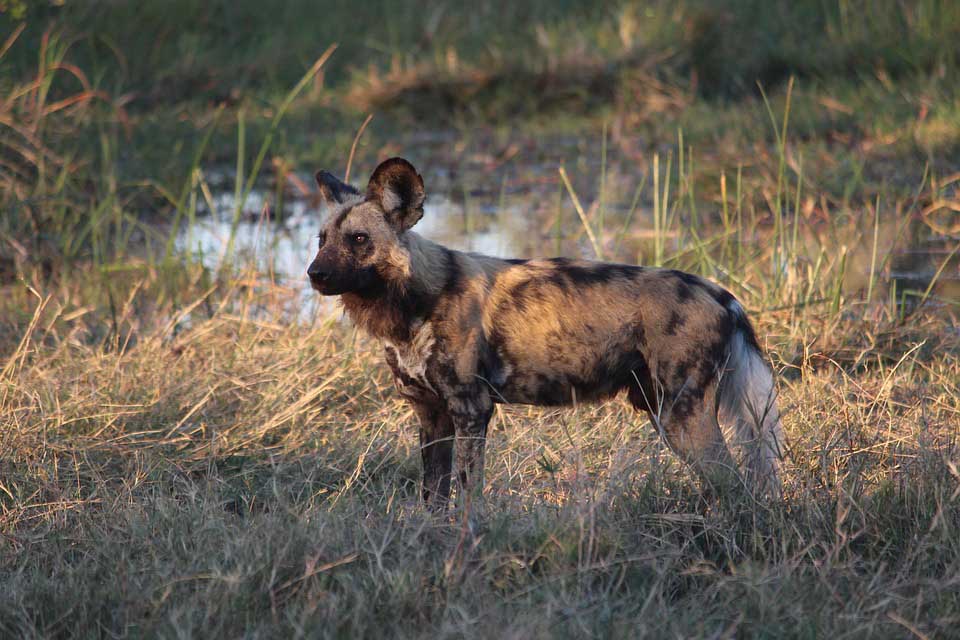- Area: 30,893 km² /11,927mi²
- Established: 2019
- Location: Morogoro Region, Tanzania
- Distance & Drive Time: Dar es salaam to Nyerere National Park is about 250km/155mi via Kibiti
Climate
The Park experiences a bimodal rainfall season and the short rains fall in November and December and are followed by a partial drying out in January and February. Thereafter, the long rains follow ending in early May. It is located at an altitude between 100 and 400 meters.
Getting there
The Park can be accessed by road or air
Air: There are regular flights from Dar es Salaam, Kilimanjaro, and Arusha to a number of small airstrips in the Park.
Park Attractions
Nyerere National Park has numerous attractions that visitors to the place can enjoy. Some of the best attractions in the Park include the ability to see the big Five, Large concentrations of elephants, and Hippos. The Rufiji River is full of abundant wildlife, the Largest population of African wild dogs to mention but a few. The Park is also endowed with beautiful and scenic landscapes that add to the beauty of this majestic place.
The Rufiji River, Myriad oxbows, delta, and Lakes
The Rufiji is East Africa’s largest river. It flows through the northern part of the Park, and this river which is slow-moving and wide, has created a number of oxbow lakes in its northern flood plains, and they create a beautiful landscape of plains and woodlands interspersed with expanses of water.
The might Rufiji with its renowned population of hippos and crocodiles flows to the Indian ocean. The river has been designated as a photographic zone and is popular for tourists.
Large Populations of African Wild dogs
African Hunting Dogs are thriving, unlike most of those elsewhere on the continent. In fact, the park has the last true stronghold for African hunting dogs in Africa. While this species is highly endangered and seen in few areas, Nyerere gives visitors a chance to see them.
Highest Concentration of Hippos and Crocodile
Rufiji River in Nyerere National Park is home t plenty of hippos and Nile crocodiles.
Diverse birdlife
In Nyerere National Park, bird life is diverse and abundant. More than 440 species of birds have been recorded! These species are found in sandbanks, oxbow lakes and channels are home to these species. The rare species of peel’s fishing owls and white-backed heron live in the wooded section of the riverbank.
Continent Largest Population of Elephants
The largest concentration of elephants on the continent has been known for taking home in this park.
Rare Species of Antelopes
Apart from being very famous for elephants, rhinos, and hippopotamus, Nyerere has also a vast range of game including brindled gnu, Nyasaland gnu, sable antelope, eland, greater kudu, waterbuck, hartebeest, zebras, giraffe, reedbuck, warthog, spotted hyena, lion, leopard, hunting dog, in addition to the largest populations of buffalo in Africa.
Activities
Nyerere National Park has some activities that give visitors opportunities to enjoy its beauty. The Park will give opportunities to do walking safaris, Game Viewing by vehicles as well as Unforgettable boat trips along the mighty Rufiji.
Boating
Watching wildlife from the water is a beautiful and different way of game viewing. Crocodiles and hippos abound and elephants, waterbuck, and buffalo spend a lot of time near the water, but a mass of other game including birds will be seen.
Game Drives
Game driving along the numerous small tracks is a popular way of enjoying the wildlife.
Walking safaris and fly camping
Guided walking safaris with overnight stays in lightweight fly camps are popular.

